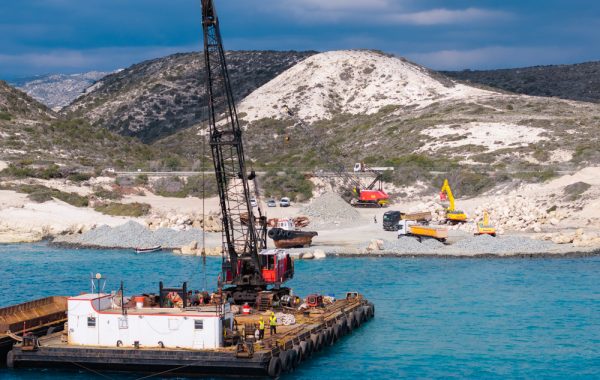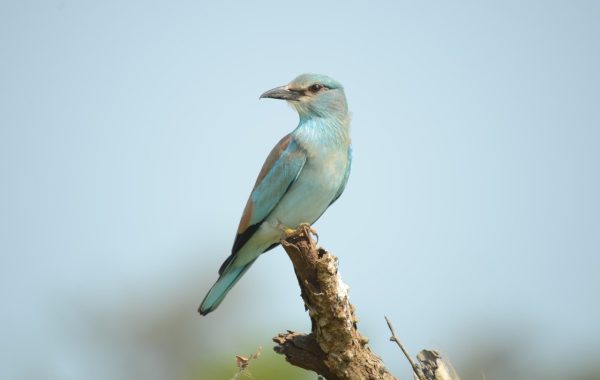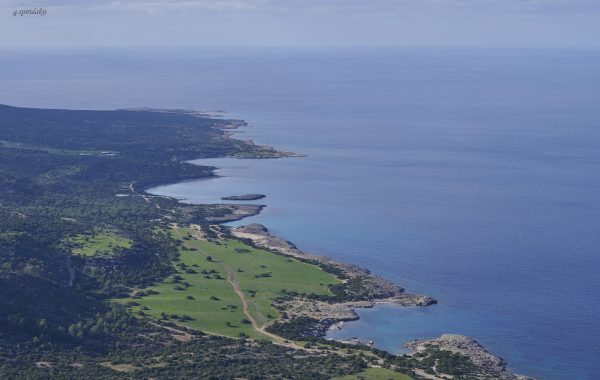You have probably heard the devastating news about the fires currently destroying the Amazon rainforest – the result of formerly successful forest protection laws being rapidly dismantled. Not only does this vital ecosystem regulate the entire planet’s climate, but it is also home to an enormous wealth of rare and unique species found nowhere else.
As a global conservation organisation, we cannot sit back and allow these fires to rage on unchecked. The only solution is large-scale, co-ordinated action to support local conservation and create new global policies that will keep forests standing forever. That’s why BirdLife has joined with 48 other NGOs from across South America, demanding immediate and lasting action from the governments of Brazil, Bolivia and Paraguay. Here is our manifesto.
“Our forests are dying” – international manifesto of environmental organisations
Faced with the environmental crisis in South America, as a result of the implementation of environmentally unsustainable public policies that have severely and irreversibly affected the health of globally important ecosystems we, as civil society organizations working to promote sustainable development, conservation of biodiversity, and the protection of human rights, make a call of attention to the leaders of the countries affected by the fires, including Brazil, Bolivia and Paraguay; to the other countries of the Amazon basin and the Plata basin; and to the international community, to immediately act in the face of the natural disasters that are occurring in the Amazon, the Dry Forests, and the Pantanal.
We declare to the world that the affected ecosystems represent an inseparable part of the invaluable natural heritage of humanity, due to their contribution in the mitigation of climate change and the provision of international public goods such as water and food security. These ecosystems are also home to at least 400 indigenous peoples and 34 million inhabitants. The Amazon, with about 6.7 million km2, represents the largest tropical forest area in the world, and houses at least 10% of the planet’s biodiversity. If we add to this the unique character and extent of other areas such as the Chiquitano Dry Forest, the Gran Chaco Region, and the Pantanal -the largest wetland in the world- we are talking about an affectation to a large territory in our continent.
We are obliged to tell the international community that the impacts of forest fires do not only affect our region, but also have a direct impact on the global climate. Governing authorities of our countries have a high responsibility to ensure the development and wellbeing of citizens, effectively protecting a healthy environment as a fundamental foundation for achieving sustainable development. The current policies implemented in Bolivia and Brazil are promoting the extension of the agricultural frontier, increasing this way the rates of deforestation of the forests in both the Amazon basin and the Paraguay-Plata basin. Adding this to the climate situation of the planet, it has caused historical fires for the region.
In Bolivia alone, fires have affected almost a million hectares; while in Brazil there have been more than 70,000 sources of fire, representing 83% higher than in the same period of 2018. Each hectare of forest that is lost could be affecting 625 mm3 of water per year. Not to mention the cloud of pollution and the levels of CO2 released into the atmosphere. Given these facts, we join the voices of millions of citizens in the world and ask our leaders:
1. That the national governments of Brazil, Bolivia and Paraguay access international aid to immediately control the fires present in their territories. This is an immediate action to prevent the expansion of fire and its impacts from continuing.
2. That subsequent measures be taken to restore environmental damage and public health. Urgent issues are medical assistance to the population of the region; veterinary assistance and rescue of wild animals; evaluation and remediation of current damage to water sources; prevention of ash pollution in the Amazon basin; and reinforcement of management measures and restoration of the affected protected-areas.
3. That the governments of Brazil, Bolivia, Paraguay and Argentina review their current policies that incentivize deforestation and unsustainable productive practices. We demand from governments that incentives and policies must be directed to land use according to their potential, which implies the implementation of better technologies for production; the recovery of degraded lands; as well as research and monitoring to increase the productivity of soils on land suitable for production. On the other hand, incentives should be generated to keep the forest standing, promoting its sustainable use, with effective control measures and the least possible bureaucracy.
Only a consistent and coordinated action between different sectors aiming to build a country for a good present and a better future can generate the well-being that we all yearn for society and the planet in general. Accordingly, the undersigned express full availability and willingness to contribute with the short and long term solutions that allow our society and future generations to count with a full and sustainable development.
August 24, 2019
1. Fundación Natura (Bolivia) 2. Fundación para la Conservación del Bosque Chiquitano (Bolivia) 3. Guyra (Paraguay) 4. Fundación Natura (Argentina) 5. Sociedad Boliviana de Derecho Ambiental (Bolivia) 6. Nativa (Bolivia) 7. Instituto de Derecho y Economía Ambiental – IDEA (Paraguay) 8. Fundación Argentina del Bambú 9. Fundación para el Desarrollo del Sistema Nacional de Áreas Protegidas (Bolivia) 10. Liga de Defensa de Medio Ambiente (Bolivia) 11. ECOA (Brasil) 12. SAVIA (Bolivia) 13. Red Latinoamericana de Bosques Modelo 14. Centro de Estudios Regionales para el Desarrollo de Tarija (Bolivia) 15. Redes Chaco (Argentina, Bolivia y Paraguay) 16. Fundación Gran Chaco (Argentina) 17. Fibo Social Impact (Argentina) 18. Foro del Gran Chaco (Argentina, Bolivia y Paraguay) 19. Red de Conservación Voluntaria en tierras privadas de Mato Grosso del Sur y Mato Grosso (Brasil) 20. Asociación Cultural para el Desarrollo Integral (Argentina) 21. Colectivo de Mujeres del Gran Chaco Americano (Argentina, Bolivia y Paraguay) 22. Alma Nativa (Argentina) 23. Mingara (Paraguay) 24. COOPSOL – Cooperación Solidaridad (Argentina) 25. Grupo Los Grobo (Argentina) 26. Matriarca, Arte Nativo (Argentina) 27. WWF – Brasil 28. ProYungas (Argentina) 29. Reserva da Biosfera do Pantanal (Brasil) 30. Fundación Victoria Amazonica (Brasil) 31. Cultura Ambiental (Uruguay) 32. Fundación para el Desarrollo en Justicia y Paz FUNDAPAZ (Argentina) 33. Natura International (Argentina) 34. Red Agroforestal Chaco Argentina – REDAF 35. Organización para la Conservación de Cetáceos OCC (Uruguay) 36. Agua Sustentable (Bolivia) 37. Grupo SUNU (Paraguay) 38. Banco de Bosques (Argentina) 39. BirdLife International 40. Consultora Ar&A Arquitectura y Ambiente (Paraguay) 41. Federación por la Autodeterminación de los Pueblos Indígenas del Paraguay 42. Centro Argentino de Arquitectos Paisajistas 43. FADU-UBA-CIHE-LAB (Chile) 44. Fundación Neotrópica de Brasil 45. Fundación Bosques Nativos (Argentina) 46. Bosques Semiáridos (Argentina) 47. Red Uruguaya de ONGs Ambientalistas 48. Aves Uruguay
This article was first published by BirdLife International.




